Ecosystems
-
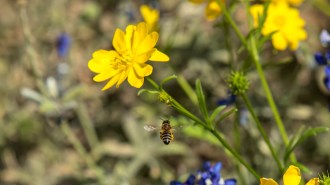 Ecosystems
EcosystemsFlowers may be big antennas for bees’ electrical signals
The finding suggests a way for plants to share information about nearby pollinators and communicate when to trigger nectar production.
-
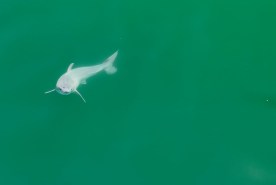 Animals
AnimalsDoes this drone image show a newborn white shark? Experts aren’t sure
If a claim of the first-ever sighting of a newborn white shark holds, it could help solve a mystery of where adult white sharks give birth.
-
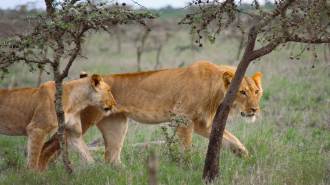 Ecosystems
EcosystemsHow an invasive ant changed a lion’s dinner menu
An invasive ant is killing off ants that defend trees from elephants. With less cover, it’s harder for lions to hunt zebras, so they hunt buffalo instead.
-
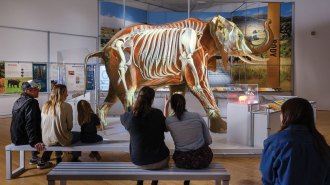 Animals
AnimalsA new exhibit invites you into the ‘Secret World of Elephants’
As elephants face survival threats, the American Museum of Natural History highlights their pivotal role in shaping landscapes — and their resilience.
-
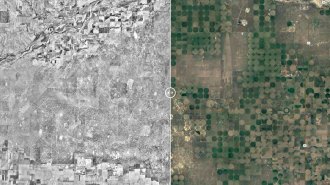 Environment
EnvironmentLandscape Explorer shows how much the American West has changed
The online tool stitches together historical images into a map that’s helping land managers make decisions about preservation and restoration.
-
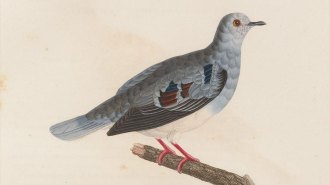 Animals
AnimalsThis bird hasn’t been seen in 38 years. Its song may help track it down
Using bioacoustics, South American scientists are eavesdropping on a forest in hopes of hearing the song of the long-missing purple-winged ground dove.
-
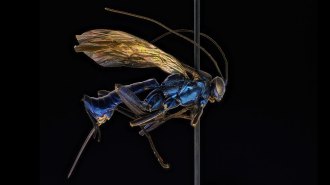 Animals
AnimalsOne mountain in Brazil is home to a surprising number of these parasitic wasps
Darwin wasps were thought to prefer temperate areas. But researchers scoured a mountain in the Brazilian tropics and found nearly a hundred species.
-
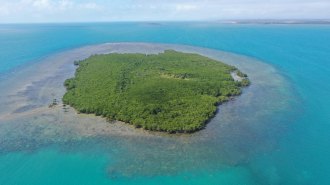 Plants
PlantsOn some Australian islands, sea level rise may be helping mangroves thrive
Rising seas usually spell trouble for mangroves. But the first survey of the Howick Islands in 50 years finds that mangroves there have expanded a lot.
-
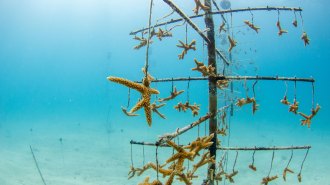 Animals
AnimalsFake fog, ‘re-skinning’ and ‘sea-weeding’ could help coral reefs survive
Coral reefs are in global peril, but scientists around the world are working hard to find ways to help them survive the Anthropocene.
-
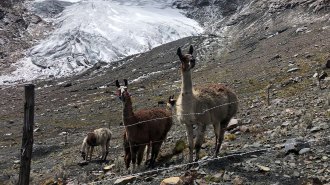 Animals
AnimalsAt the foot of a melting glacier in Peru, llamas helped revitalize the land
A partnership between scientists and farmers suggests how llama herding can mitigate some of the impacts of climate change.
-
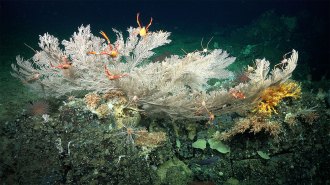 Life
LifeSee the wonders of two newfound deep-sea coral reefs off the Galápagos
Coral reefs around the world are in trouble. But these reefs in the Galápagos Island Marine Reserve have yet to be damaged by humans.
-
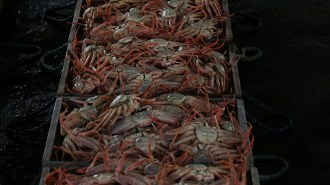 Life
Life10 billion snow crabs have disappeared off the Alaskan coast. Here’s why
In the eastern Bering Sea, the snow crab population plummeted after a marine heat wave in 2018. The crabs may have starved, a new study finds.
By Jude Coleman